#non romantic non monogamy
Text
I am not exactly romance repulsed, but I tend to get deeply uncomfortable when people have romantic feelings for me and want to engage in a romantic monoamorous dynamic with me... I have all this love and affection inside of me and I want to share it with anyone I think deserves it...
#romance repulsed aromantic#Monoamory doesn't suit me lol#Aromantic#Romance neutral aromantic#Autism#Aroace#non monogamy#Polyamory#Im polyamorous but my love isn't romantic#People do tend to interpret my behaviour as romantic which sucks
30 notes
·
View notes
Text
Let's talk about romantic friendships
I love my friends. And it took me a long time to do that. For years, I felt frightfully alone when it came to platonic relationships, because I always felt that my friends got along better among themselves than they did with me. That if I wasn't there, I wouldn't be missed.
It happened in highschool. I was tossed aside during my last year as if I didn't matter, and the worst part was probably the fact that I didn't care all that much, because I knew even then that they weren't my friends. And when I started to go to university, I knew it was time to make real friends. And I did. But it was so damn hard to connect. And it would be years before I allowed myself the vulnerability to actually be able to do it.
Polyamory, when me and S first started exploring it, never was about multiple romantic partners. I've never been the type to easily fall in love or like someone, and I've yet to meet someone I also want to have that type of romantic/sexual connection with. Polyamory allowed me to get closer to my friends. It allowed me to strive for deeper connections with them, because my partner no longer held that top place in my life.
And then, without even realizing it, my relationship with my friends started to look very romantic, even if we weren't "daiting", per say. Things like snuggling. Occasional kisses. Sharing the little things and the big things in the day to day. Having the keys to each others houses. Cleaning together. Making each other breakfast the morning after a night out. Little gifts just for the sake of it.
"It's all very platonic" I would say, and S would tease me for it. And it was when I started to realize this, was when I consioulsy started to explore relationship anarchy, to declare openely that the main political stance I hold relates to how I choose to develop and cultivate relationships.
I hang out with friends. But whenever we go out for a bite to eat or make time specifically to see each other, they're dates. And I tell them that too. Because a date is essentially a space to share with someone you care about, to talk, to connect, to be intimate. And those are the kind of relationships that I want.
We are not "just friends" I love them too much to say it "just" anything. We may not have sex or introduce ourselves to other people as couples. Some have exclusive relationships. But that does not make our connection any less meaningful, or important in my life. They're romantic relationships in the way that I feel towards them, the way we treet each other, the way we cultivate our connection.
And sometimes that feeling comes back. The one that's conviced that I don't belong. The one that makes me feel so alone. And so, I lock myself in my room to try to breath and try not to cry while everyone else is outside having a blast. And sometimes my friends leave me alone, but greet me with a smile and a hug when I come out. And sometimes one of them comes in, and sits next to me, makes sure I'm allright.
The feeling doesn't go away. It's not that simple. But I no longer have to face it alone.
14 notes
·
View notes
Text
I get the whole ethical non-monogamy embodiment as a queer person but bich I’m trynna merge our souls together I’m not trynna share you with anyone
#being monogamous doesn’t make me less queer#I’m a hopeful romantic#I’m down for liberation within our relationship#but like not trynna liberate you into someone else’s arms#i swear the Bay Area is all about non-monogamy#i live in this wrong place#😭#personal
5 notes
·
View notes
Text
Hardest part about trying to understand my own labels and identity (as someone who enjoys queer labels) is that I have so so little actual relationship experience. So sometimes I’m all comfortable with myself like “Yeah, I’m Bi and Poly” and other times I’m like “You’ve never dated a man and never tried a poly relationship how the fuck do you know?”
#esp with being Poly I’m like#the idea of being in a Poly relationship makes me feel very comfortable#I like attention a lot and I do my best to be very good about open communication nowadays#but also I think if I found a partner I love I’d be totally cool with being monogamous too if that’s what they want#like I don’t NEED a Poly relationship to he happy I just feel like I’d be comfortable in both monogamy and poly#but also not all types of ethical non-monogamy makes me feel comfortable?#Like I wouldn’t be ok with not knowing the other ppl. Ideally we’d just all be dating together as a unit#and I’d Definitely not be ok with my partner having another boyfriend/girlfriend/etc that I wasn’t romantically involved with#but those are such common components of poly/non-monogamy that I’m like ‘maybe I’m just not poly bc my idea of it is too idealistic’#ugh I dunno. feelin weird today.#don’t get me started on the ‘am I just a faker with a kink’ anxiety too#not a vent just talking
3 notes
·
View notes
Text
Pôr-do-sol
Na vermelhidão do horizonte
Relembro do calor de nossas peles
E das nuances da nossa história
Que se constrói na intensidade.
As tintas dos céus que se expandem
Nos pintam de luz e de sombra
E embalam as danças
Das nossas almas tagarelas.
E que seja, e que queime;
Pois as feridas são cauterizadas
E as cicatrizes, beijadas.
E que seja e que reverbere;
Pois nas doses do seu beijo
Me embebedo, entregue.
Gale Vangless
#gale vangless#soneto#poema#poetry#my writing#portuguese writing#love#couple#romantic#amor#relacionamento#lgbtq#bisexual woman#polyamory#poliamor#não monogamia#non monogamy
3 notes
·
View notes
Text
Being threateningly romantic with my platonic soulmate
Tuesday, July 5, 2022
I love that when I talk to my platonic soulmate, I don't need to have a filter. She just gets me and I don't need to over explain anything because I've never felt like she's misunderstood me (which is so important because I feel like I've come across so many people in my life that constantly misunderstood me, almost on purpose just to get on my nerves).
I find her presence to be so comforting and she puts me at ease whenever I'm riled up. Sometimes I'll have some really rough days where all my insecurities are dug out and I can't hear any clarity in my head, and she'll message me or I'll get to hear her voice and the shitty committee in my head shuts up immediately. She's so grounding and she balances me out (maybe it's because she's a libra and I'm a gemini haha). I'm so lucky to have her in my life because she's basically my rock.
Sometimes I worry that I don't provide the same amount of support that she gives to me, but yesterday, we had a funny conversation that reminded me of our mutual relationship together. It sounded like she was having doubts in her ability to produce something, so I responded to her by saying:
But like... we still got a long ways to go and I feel like you might come up with an idea and the motivation to come up with something before we both die
She started laughing and she kept on repeating "BEFORE WE BOTH DIE" and the more she repeated it, the more I told her it sounded threateningly romantic. And it seems like we shared the same sentiment because she responded:
It's kinda weird for me to think this, but like it makes me feel warm n fuzzy that you consider "us" in this journey and not just "you"
Anyway, the "before we both die" comment apparently 100/10 made her day, which in turn made my day because of course I'm happy when she's happy. 💕
#platonic#platonic soulmates#polyamory#ethical non monogamy#queer#bisexual#married while polyamorous#lgbtq#platonic relationship#before we both die#threateningly romantic
1 note
·
View note
Text
Venus Sign Observations: 💞🤎💞
Mutable Venus Edition: ♾️

Pisces Venus: 🌊
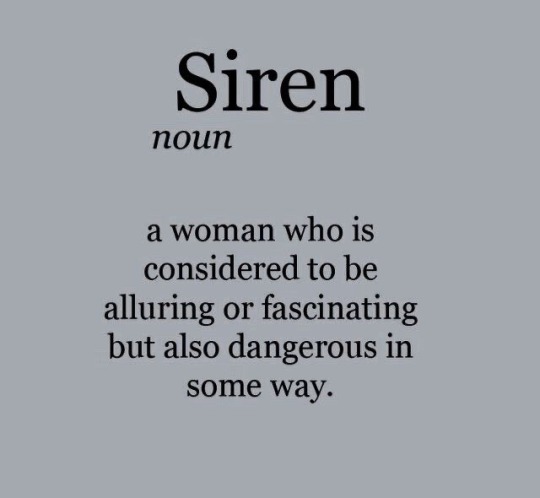
🌊 Pisces Venus is open-minded when it comes to various love styles, which can be attributed to their mutable water nature. They possess a remarkable ability to offer unconditional love to virtually everyone they come across.
🌊 In intimate relationships, they enjoy pleasing their partners and don’t mind adapting to their partners love style/needs especially if that would make them happy.
🌊 Venus in Pisces can get obsessed with their partner too high-key. They are flighty but obsessed at the same time which can be confusing for their partner. However, I think their love can be pretty intense in general.
🌊 As loving as Pisces Venus are, I think it’s lowkey a f-boy/girl placement. They have a tendency to fall in love quickly, but they can also move on just as swiftly. However, the process of moving on can sometimes take a considerable amount of time for them as well. Their emotions can be chaotic, leading them to appear flighty in their relationships.
🌊 Pisces Venus doesn’t always want to be floating around in love. They yearn for a secure and comforting space to calm their emotional waves. Essentially, they desire a safe haven where they can find solace and relaxation in their relationships.
🌊 Venus in Pisces will love all of you even the darkness that is kept tucked away. It truly doesn’t scare them. So long as you keep up with their fantasy, don’t take advantage of them, and hurt them too many times to the point where they can’t forgive you, they aren’t going anywhere.
🌊 Venus in Pisces tend to be open-minded when it comes to relationships, they may even be open to polyamory, but they are not opposed to monogamy either. Their preference for one or the other depends on their other placements. For example, as a Pisces Venus myself, I am capable of being loyal when the situation calls for it. This ability to navigate both relationship styles can be attributed to my Taurus Sun/Mars placements, which provide stability and a sense of commitment.
🌊 Having a Gemini Moon further enhances my openness to explore different relationship dynamics. However, I will only participate in them if I am with a partner who is mature about it. I’ve been with people before that were non-monogamous but didn’t like it when I was the same way. Like, babe, I'm simply matching your energy.
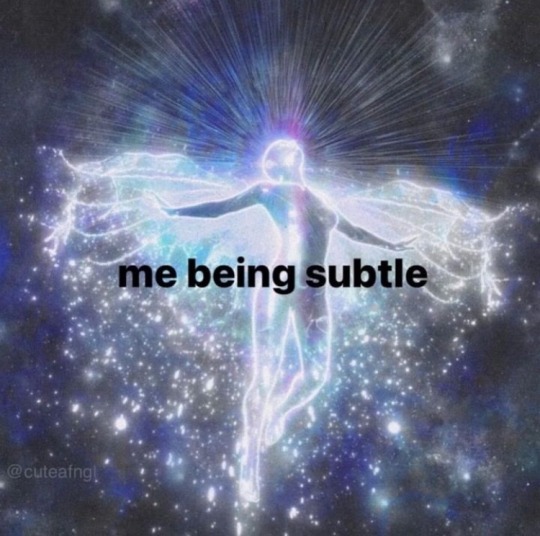
Sagittarius Venus: 🏹
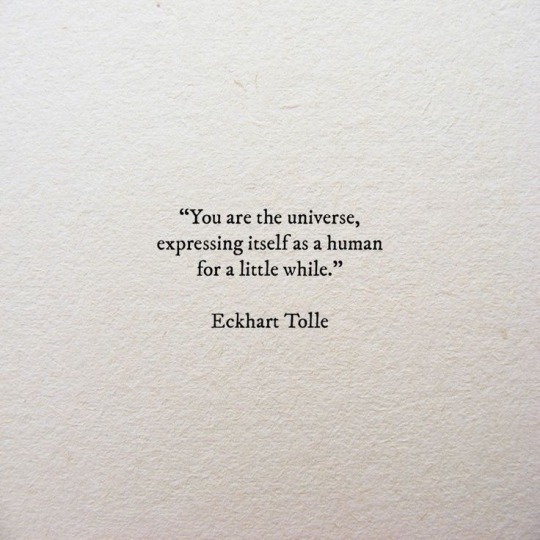
🏹 Sagittarius Venus is open-minded when it comes to choosing a partner. In fact, they are more likely to have a partner from a foreign country or a different cultural background. However, they do have a fear of commitment. Which often leads them to explore various relationship dynamics, as they value their freedom and independence.
🏹 In their intimate relationships, Venus in Sagittarius likes to maintain an easy-going nature. They prefer to let things unfold naturally and avoid rushing into anything. Clinginess is not well-received by them, as it gives them a sense of discomfort when their freedom is suffocated or suppressed.
🏹 They may be more inclined to explore relationship dynamics such as ethical non-monogamy or open relationships. Their love for diverse experiences extends to their romantic life, and they may find fulfillment in connecting with many different individuals.
🏹 Venus in Sagittarius’s adventurous nature and desire for new encounters can make them more open to exploring non-traditional relationship structures that allow for multiple connections.
🏹 While Sagittarius Venus have a tendency to value their freedom, they are still capable of committing to a relationship. However, it requires finding the right person. Like someone who shares their open-mindedness and free-spirited nature. They need someone who won’t restrict them.
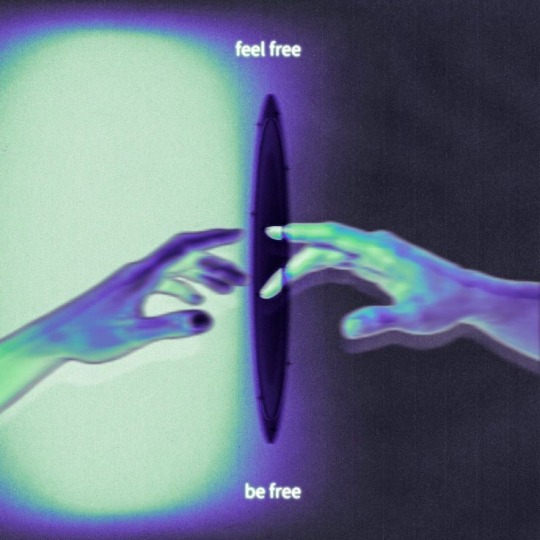
Gemini Venus: 🦋
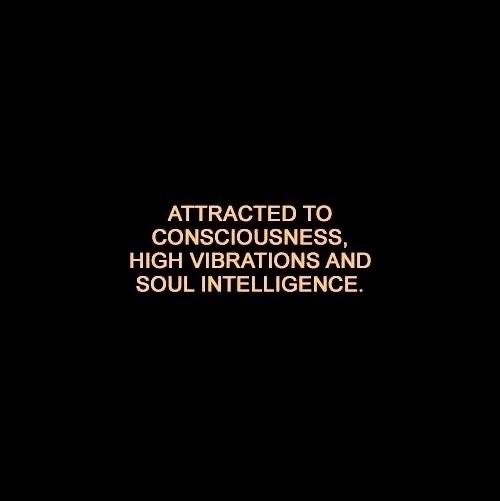
🦋 Gemini Venus are adaptable with their approach to love. They will adjust their mindset and actions when it comes to matters of the heart. While they may appear flighty and free-spirited in their romantic endeavors, once they make a decision to commit to a partner, they are decisive and fully dedicated.
🦋 Gemini Venus are witty and possess a great sense of humor. They enjoy playful banter and need someone who can match their energy and make them laugh overall.
🦋 Venus in Gemini values intellectual stimulation in their relationships. They seek a partner who is not only intelligent but also intriguing and captivating. They desire someone who can engage in meaningful conversations and challenge their thoughts and beliefs. The ability to broaden their perspectives is essential for them, as they thrive on continuous learning and growth.
🦋 They appreciate partners who are open to new ideas, experiences, and perspectives. Gemini Venus enjoys exploring different viewpoints and needs a partner who can also embrace diversity and adapt to new situations.
🦋 They are attracted to partners who can strike a balance between nurturing the connection and allowing each other to flourish as individuals.
🦋 Venus in Gemini values their independence and needs a partner who will respect and appreciate this aspect of their personality. It is important for them to be with someone who has their own interests and hobbies, as they believe in the importance of maintaining individuality within a relationship.

Virgo Venus: 🍃
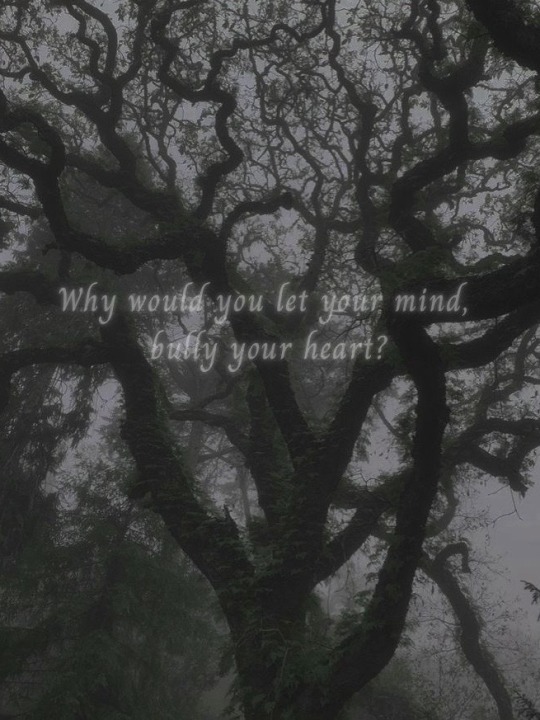
🍃 Virgo Venus tends to approach love and relationships with a practical and analytical mindset. They value stability and reliability in their partnerships, seeking a strong foundation based on trust and mutual support.
🍃 They often have high standards in their intimate relationships, but it stems from their desire to see their partner reach their highest potential. They genuinely want their loved ones to be the best version of themselves.
🍃 In their intimate relationships, Venus in Virgo values self-improvement and personal growth. They always strive to become better versions of themselves and expect the same from their partners.
🍃 Intellectual stimulation and engaging conversations are important to Virgo Venus, as they enjoy exchanging ideas and learning overall.
🍃 Venus in Virgo has a strong desire to fix and save others, driven by their compassionate aura. However, their giving and selfless nature can make them vulnerable to being taken advantage of by others.
🍃 In their intimate relationships, they prioritize finding someone who fits seamlessly into their lifestyle and meets their high standards. However, if they genuinely love someone, they are willing to be more flexible and make compromises.
🍃 Virgo Venus values cleanliness, organization, and orderliness in their surroundings, and this preference often extends to their relationships as well. They appreciate partners who are responsible, hardworking, and self-sufficient.
🍃 Open-minded when it comes to different love styles. They are willing to try anything once, especially if it makes their partner happy. Open relationships could be a possibility for them, especially if they have other mutable placements.
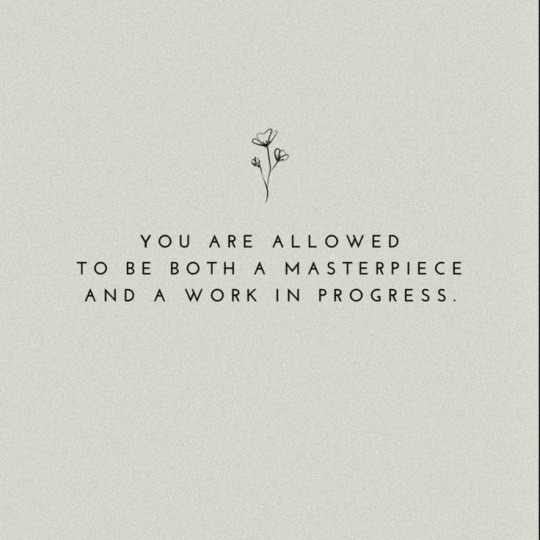
AstroSoulDivinity on TikTok
#astrology#zodiac signs#spirituality#astroblr#shadow work#astro placements#zodiac#astrology observations#birth chart#natal chart#mutable signs#pisces venus#venus astrology#sagittarius venus#virgo venus#gemini venus#gemini moon#taurus mars#taurus#zodiac placements
749 notes
·
View notes
Text
one end is one empire: monogamy in the nine houses
in Harrow The Ninth we are told the origins of lyctorhood lie in research conducted by john's disciples in the hopes of establishing how best to serve alongside their lord without needing him to confer immortality—those who became the first adepts and first cavaliers, then the first lyctors. we know that ultimately the design of lyctorhood was, in reality, a way for john to ensure his loved ones would be something he could touch, for them to become his hands and his fingers. the disciples' collective legacy lived on in two ways: the fruits of the lyctoral process, his saints, and the institution of the cavalier-necromancer bond throughout the nine houses.
as we see specifically highlighted in A Sermon on Cavaliers and Necromancers, this bond is a cultural fixture of house society and is emphasised not only as “one flesh, one end” but also as the essential equation of “the one binds to the other”; the sanctity of this bond lies in the framing of the two as being complementary halves, necromancer and cavalier forming one, and this sanctity being threatened by the disruption of the essential equation of one necromancer and one cavalier. a single cavalier paired with multiple adepts is placed under the logistical burden of supplying thanergy to, and protecting, multiple individuals whilst an abundance of cavaliers would leave the necromancer ill-equipped to perform necromantic feats that require intimate understanding of another's thanergy. the complementary difference of each is also their undoing as individuals: the necromancer's art is impossible without a swordswoman, and they are rejected by thalergy planets, while a lone cavalier without the care or craft of an adept is vulnerable “amid the bullet-filled barbarism of other planets”.
the bond is characterised as a joining of complementary halves, a union of the two incomplete to form a whole one. its nature is defind by each using “one flesh, one end” as a maxim for their passion for each other; the other is their ideal and their completeness. it is said to be the underpinning of house society—without the acknowledgement of the cavalier and necromancer's duties to each other, the sanctity of one binding to the other being upheld, and the continued reproduction of the bond the houses will fail in their mission to uphold the values of the god who became man and man who became god.
“Those who hold the sword must hold it for the necromancer. Those who were born with thanergetic nervous systems ply their art only by the grace of the sword. The necromancer is weak, and the sword is strong. The sword is weak, and the necromancer is strong. Our pleasure at the bond unbroken between necromancer and cavalier is a Nine Houses acknowledgement of the equality granted to us by God.”
— Tamsyn Muir, A Sermon on Cavaliers and Necromancers
lyctorhood: the marriage of flesh and spirit
though it is made clear throughout the series that literal marriage of the two is considered to be taboo, grotesque and even traitorous to the ideals of the necrolord prime—in harrow the ninth, it is explicitly said that there are many strictures against a necromancer marrying their own cavalier—the bond between the necromancer and cavalier itself is an overt parallel to the christian concept of marriage: it is the joining of two incomplete, complementary halves to become one flesh in the name of god. house society is divided into adepts and non-adepts: those who bear necromantic characteristics that make them resemble the emperor, and those who do not, but can join with those that do and become as one flesh—one in his image, and one who can join with those that resemble him.
despite their supposed nature as complementary halves, incomplete as individuals, it is also made clear that the taboo against marriage and romantic entanglement is one born out of the necessity of keeping the bond a meeting of complementary forces united in the name of god rather than a codependent loss of self. the erasure of the difference between them violates the sanctity of their bond, diminishes each before society and god: the two are united as one flesh, but must remain unfused and defined as halves. the joining of necromancer and cavalier is one that necessitates their continued division.
She didn’t have to tell me in so many words what we both knew, that the relationship between cavalier and necromancer could so easily curdle into codependency . . . a loss of self on both sides. An obsessive fusion of halves, not two complementary forces.
—Tamsyn Muir, As Yet Unsent
the reality of this, of course, is that the loss of self on both sides is an unequal one: the adept resembles john where her swordswoman doesn't, is the one to serve as her house's heir as opposed to the heir's bodyguard and representative in duels. the eighth—illustrated as the most devout and orthodox of the houses—is the one that best illustrates this imbalance through their use of soul siphoning, a temporary displacement of the cavaliers soul for the deriving of power through the ensuing void. the difference between necromancer and cavalier is their strength, and to forget it is to become diminished, their complementary forces lost to obsessive fusion.
the cavalier's role in the lyctoral model is to be consumed, to become the furnace of their necromancer's lyctorhood. the body of a cavalier is a means to an end, the swordhand that is discarded once a necromancer can take up the weapon in their own, and their soul is a source of perpetual thanergy and a securement of legacy, immortality. a cavalier is trained to follow a half-step behind and wait upon their adept, to die for them if needs must, and is conditioned to accept that their duty is a sacrificial one. the cavalier facilitates the art and legacy of the adept; the adept is born into the art, and the cavalier is born into service in the name of that art.
the necromancer's role in the lyctoral model is to consume, to ply the art with the aid of their cavalier and to burn the cavalier to fuel the formation of their legacy, a literal immortality of self. their necromantic characteristics are seen to make them more like the emperor, as per A Sermon on Necromancers and Cavaliers, and drives expectant parents to concern themselves with ensuring that their children are born on a thanergetic planet or in proximity to thanergetic grave dirt. each house is ruled by a necromantic scion. the equality of cavalier and necromancer may be spoken of at length, but the supremacy of the necromancer in society is clear; the adept knows the art, is closer to god, due to being born with a gift only found on thanergetic worlds, the emperor's dominion. it is the necromancer who becomes the lyctor, and the cavalier who serves as their furnace.
you cannot separate the concept of lyctorhood from john and alecto, nor the concept of necromancer and cavalier—both concepts originated with john and alecto. in fact, lyctorhood was conceived as an emulation of their bond:
“You let us think we’d cracked it [...] You had already done it yourself. But you had done it perfectly!!”
“Then, when the disciples come to you and say the word Lyctor, she does not understand that they want the thing you did to her—she watches as you watch … watch them misunderstand the process.”
when john created alecto—his cavalier, the first cavalier—he ate soil, wrenched a rib from his own body, and conjured a labyrinthe to house her in: partook in her flesh and imprisoned her in a body composed of a comminglement of hers and his, hid him in her and her in him. a marriage of flesh and spirit. similarly, the petty lysis we are familiar with requires the literal consumption of the cavalier's flesh and the integration of their soul with the necromancer.
Then the LORD God said, “It is not good that the man should be alone; I will make him a helper fit for him.”
— Genesis 2:18
those who hold the sword must hold it for the necromancer, just as the necromancer can only ply the art by the grace of the sword; a lyctor, a necromancer, can hold the sword for themselves, and ply the art by their own grace. a grace in the image of god.
john's saints invented the process that allowed them to go on to wield the sword and bring themselves closer to his image, but that process required the lives of their cavaliers. john ensured that it did. the echoes of this manipulation are what went on to form the basis for the necromancer-cavalier bond that permeates house society, and shaped the empire; just as he coerced his loved ones into becoming his fists and gestures, john instituted a societal binary composed of people in his image (necromancers) and a people who can live and die to serve them (cavaliers).
“But from the very beginning of creation, ‘God made them male and female.
‘That is why a man leaves his father and mother and is joined to his wife and the two become one flesh.’
And so they are no longer two but one flesh. Therefore, what God has joined together, let no one separate.”
— Mark 10:6-Mark 10:9
the monogamous implication of one end
as we have explored, the bond of necromancer and cavalier is one modelled on that of the lyctors, itself modelled on that of john and alecto, and serves the twofold purpose of compensating for the physical infirmity of the necromancer and facilitating lyctorhood—the cavalier's duties are that of bodily service and sacrifice. it is a joining of complementary halves, inadequate in their individuality, the necromancer who resembles john and the cavalier who serves them and dies for them; it is defined by an essential equation, the one binding to the other—one flesh, one end, one empire.
in this way, it is a union that parallels the christian marriage in a number of respects: it is founded on the belief in an oppositional delineation of peoples into two immutable categories, benefits one of these to the detriment of the other in accordance with the will of god—specifically the category said to resemble him most closely, ensures that the beneficiary's legacy may continue through their union and the bodily labour of the other, and the arrangement is thought to be foundational to and uphold the godliness of the society. to sour the sanctity of marriage, of cavaliership, is to betray the ideals of god; the pursuit of true equality contradicts his design and is limited by societal strictures. their union is to each other, but they must not be codependent, must remain aligned with their roles, and must serve their emperor faithfully—to forget their difference and their roles is to diminish themselves.
“Monogamy is formed, then, not as a relationship between just two people, but rather as a complex system of obligations and social and moral impositions - mainly governed by christian morality, in which the family is legitimized only by sacred marriage and by the values of capitalism, of propagating wealth from family generation to family generation and the maintenance of private properties – which has, as its scope, the guarantee of monopoly and concentration of wealth and power of the nobles to the detriment of division of inheritance with “bastard” children.
In this way, it is clear that, even before capitalism, monogamy is necessary for the management and maintenance of this system, serving as a support for the reproduction of power mechanisms in the social body - especially in the beginning and expansion of the capitalist formation - mainly through the family. Capitalism invests itself in the life, affections and sexualities of the population in order to use them as State apparatuses for the maintenance of relations of production and power through compulsory monogamy.”
— @zapatism, Capitalism and monogamy
the exploitative nature of christian monogamous marriage, its role in ensuring the supremacy of the man, how it ensures the propagation of his legacy, marriage's contribution to the maintenance of other social institutions such as the nuclear family, and the institution's legacy of socially coercive mononormativity are all literalised by lyctorhood throughout the series. the necromancer is male and cavalier female, both in the societal sense and in the biblical sense, and this dynamic is made clearest by how lyctorhood is perfectly emblematic of patriarchal monogamy, a social arrangement that benefits the necromancer and wholly subsumes the cavalier.
“It is based on the supremacy of the man, the express purpose being to produce children of undisputed paternity; such paternity is demanded because these children are later to come into their father’s property as his natural heirs. It is distinguished from pairing marriage by the much greater strength of the marriage tie, which can no longer be dissolved at either partner’s wish. As a rule, it is now only the man who can dissolve it, and put away his wife [...]
The Greeks themselves put the matter quite frankly: the sole exclusive aims of monogamous marriage were to make the man supreme in the family, and to propagate, as the future heirs to his wealth, children indisputably his own. Otherwise, marriage was a burden, a duty which had to be performed, whether one liked it or not, to gods, state, and one’s ancestors.”
— Frederick Engels, Origins of the Family, Private Property, and the State
gideon, camilla, and naberius all demonstrate how the cavalier is pushed to sacrifice and conditioned to accept the supremacy of their necromancer while their respective necromancers showcase how the necromancer is bred and coerced into accepting the expendability of their cavalier. gideon justifies her own suicide, camilla pleads with pyrrha to lie to palamedes about how their incomplete lysis is steadily killing her, and naberius is murdered by his own necromancer; ianthe justifies the murder of her own cavalier from birth as an acceptable payment made with the life of a man born to die for her ambitions, palamedes is forced to pursue a 'truer' form of lyctorhood in the hopes of preserving camilla, and harrowhark's refusal to accept gideon's life results in her own incomplete lysis that is reponded to via corrective violence performed by g1deon at the behest of john.
the violence we see play out throughout the series overtly demonstrates the way societally enforced monogamy can foster and justify abusive dynamics, extreme levels of codependence, and corrective violence in response to abnormality. simultaneously, we see how the conditions necessary for normalising the necromancer-cavalier within society are, at their core, eerily familar systems of oppression and the construction of false homogenities such as monogamy itself;¹ the continued reproduction on the bond, like so many false homogenities, is reliant on societally instituted exploitation, coercion, and corrective violence that will hit close to home for a queer audience.
the union of necromancer and cavalier is descended from lyctorhood and is akin to marriage in a mononormative society, while lyctorhood itself represents the very height of how christian marriage functions to reify male supremacy and it and the ideals that reinforce it (delineation of the population into two supposedly indelibly distinct, complementary, oppositional groups that are coerced into the formation of supposedly equal unions that favour one that is a beneficiary of widespread societal privilege) aid in the maintenace of patriarchy and the reproduction of normative arrangements that contribute to the continued existence of the systems individuals live under. cavaliership maintains necromancer supremacy just as christian ideas of monogamy and marriage maintain male supremacy. john gaius' post-resurrection reconstruction of christianity does not stop at imagery and terminology: he has recreated a distinctly christian take on patriarchy and monogamy, based on thanergetic nervous systems instead of sex.
Malachi 2:10
those born on the houses think themselves to be fundamentally different to those born outside them; within house society necromancers reign supreme, and cavaliers' status is married to that of their necromancer's. the prejudice we see directed toward zombies and wizards is onscreen and blatant, horrific at times, but justified by the nine houses being known for their imperialism and brutal tactics. the discrimination toward those who lay outside the houses is much less overt, but nonetheless felt. we know from the beginning of Gideon the Ninth that the empire has enemies yet they are not characterised, humanised, or acknowledged in much capacity—and this remains consistent throughout the series until Nona the Ninth.
it is here we see, in detail, the treatment of non-house citizens: frequent planetary resettlement, bombarding, brutal violence that churns out waves of traumatised refugees, and a complete lack of acknowledgement of their plights. they are beneath notice. we do not see them until we, the readers, are placed on the ground of one such occupied planet and privy to ianthe's boredom as she rattles off a laundry list of horrific implications regarding how any individual or group who violates these conditions renders the entire agreement null and void, and the population will consequently represent a legal entity that has damaged property, acted unlawfully, committed or been accessory to murder, and performed a coup.
the people born outside the empire are subject to continual mass punishment for being born on thalergy planets, for being the descendants of those who turned their back on earth, for resisting resettlement and occupation, for the crime of their existence. they are cattle, to be herded and exterminated with little fanfare. they are fundamentally different to those born on thanergetic planets; the necromancy-cavalier binary is what separates house citizens from animals.
"One flesh" is the underpinning of our whole Empire. We are born necromancers, or we are not; yet we are one. The non-necromancer will still have necromantic children. The necromancer will have parents who lacked the aptitude. The possibility is within us. We live under the thanergenic light of Dominicus, are born, grow, and die in his thanergetic Houses; the Resurrection made us so. We are fundamentally different to those born on thalergy planets outside the Empire. Our anxiety drives the expectant parent to arrange to give birth back home, or concern themselves with the baby's proximity to grave dirt sourced from home. Our necromantic characteristics make us more like the Emperor. As he was once man, and became God, and was God and became man, so were we dead and became alive; so were we alive and became dead.
— Tamsyn Muir, A Sermon on Cavaliers and Necromancers
john is a queer indigenous man who has created a neochristofascist empire, locked in a state of perpetual warfare and expansion, that is geared toward the mobilisation of violence against a population in diaspora, in the name of vengeance for an indelible sin committed by their ancestors. those within this empire differentiate themselves from the barbaric people their society subjects to constant displacing violence via a belief in their closeness to god, a closeness based on their position in a social arrangement that closely adheres to christian patriarchy and mononormativity. he has implemented the kind of violence wielded against indigenous people the world over throughout history in the name of punishment; john has taken up the tools of christian hegemony to oppress the descendants of the trillionaires.
the root of the problem with the nine houses is that it is an empire with concentrated theocratic power fueled by exploitation, and that theocratic power is explicitly modelled on christianity and the patriarchy that implies. cavaliership is one such example of where that leads. john's aims may have been supposedly noble, but the material results of his actions are the recreation of the same systems of oppression that have been used against those like him for all of history, and the ones we chafe under even now. nobody with truly noble aims and a firm stance against oppression would take up the exact oppressive systems he was subject to and turn them against another; is vengeance a truly noble cause when it hinges on the same oppressions that led to the conditions of the inciting incident?
similarly, we see the ways these false homogenities are indeed false: the enactor of corrective violence—g1deon—is himself an incomplete lyctor and was romantically entangled with both wake and pyrrha; john could be similarly said to be a subversion of this monogamy, but i would argue his case is instead an illustration of male/necromancer supremacy—his affairs with his saints come after he uses his power over alecto, gained through their ur-necromancer/cavalier bond, to 'put away his wife' in the name of maintaining the approval of his lyctors. i can't really elaborate on this anymore beyond recommending @familyabolisher's analysis of how the multiplicity of cavalierhood as a subject position casts the spectre of potential incest where Kiriona and Alecto are concerned as it is very much in the same vein as this
#the locked tomb#meta#analysis#tlt meta#tlt analysis#nona the ninth spoilers#lyctorhood#cavaliership
147 notes
·
View notes
Text

I love Boston being the trash he is and hooking up with Boeing right after promising Nick the romantic world because, to him, sex and romance are two entirely different things.

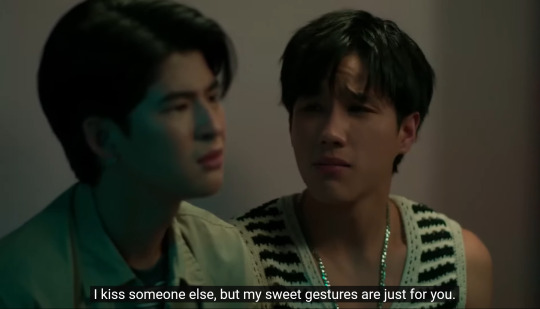
I love that this is made clear by Boston who just... he isn't monogamous by most people's definition and that's okay. Even if Nick can't handle that kind of relationship with him
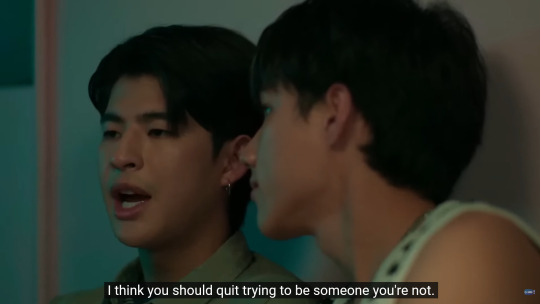

Because this is who Boston is and it's not the contradiction is seems to be. He is loving and sweet and caring but he also views sex and romance completely separately and he is honest and open about that and very, very clear.

I love this so much. I cannot put into words my undying love for this. For the fact that Nick knows and that Boston has been clear. I just wish the conversations didn't keep focusing on insisting that Nick's want for monogamy was better than Boston's clear and honest non-monogamy.
#only friends#only friends the series#only friends series#ofts#only friends meta#only friends boston#ofts boston#thai bl#thai series#bl drama#bl series#thai drama#thaibl#asianlgbtqdramas#thai bl series#asian lgbtq dramas#thai bl drama#gmmtv bl#gmmtv series
370 notes
·
View notes
Note
I'm curious about Oleander since I did read about Oleander being non-monogamy. Let's say Vesper to wanted to have a relationship with Oleander and prefers to have the romance just between them. Would Oleander agree or not?
Oleander would agree to a monogamous relationship with a long-term partner. For him, monogamy isn't the default, and so negotiating expectations is just a normal part of building a relationship. He just asks that expectations go both ways, ie. he will be romantically and sexually monogamous for a partner who wants that and does the same for him.
87 notes
·
View notes
Note
i always forget that "monogamy" is supposed to be "sex with one person for the rest of you're life" cause i always use it to just mean "having a partner/wife/husband/boyfriend etc" because i'm so used to have mutuals who have longtime boyfriends or husbands who also go to sex parties, and post nudes and flirt with their mutuals that i forget that's not considered "monogamous" behavior.
With such a narrow definition of monogamy, it's hard to tell who even is monogamous. Many people in open relationships consider themselves monogamous because they have one partner, and they're not necessarily wrong to use this descriptor, but they've still transgressed monogamy in the way you describe. Within open relationships there are so many kinds--"boomerang" non-monogamy where they always come back to their partner, "don't ask, don't tell" agreements, agreements where the couple doesn't have sex at all but gets sexually fulfilled elsewhere, people with specific clauses against close friends and exes. And there are members of many such arrangements who still look down on people in less monogamous arrangements!
Conversely, if monogamy is about only having sex with one person, would a triad where only two members have sex with each other "count" as a technicality? Many don't consider their relationships "open," but will exchange nudes with other people. Some people consider this, or even watching or reading porn, a transgression of monogamy. Some would say a same gender relationship definitionally cannot be monogamous, because it's not just "two people" who only have sex with each other but "one man and one woman."
When I was younger, I used to tune out critiques of "toxic monogamy" because I thought it referred to a discrete prejudice towards polyamorous people. Now that I'm older and more inclined to call myself polyamorous, I think the average monogamous person is more screwed over by monogamy than I am, really. Monogamy teaches that cheating is the main transgression one can commit in a romantic relationship--not only that, the only transgression. A friend of mine was nervous to tell me he had cheated on his partner even after he told me about his partner's physical and financial abuse. Monogamy taught an ex partner of mine that a relationship (turned marriage) would cure his loneliness for good. Monogamy taught him that any act of cruelty or control over me was preemptive self defense against me cheating.
The mythology around "cheating" is constantly changing to suit the interests of those in power or who consider themselves to be. That ex would treat it as cheating when I spent "too much" time with other friends, my family, or even my hobbies and academic work. Women cheating is said to be worse than men cheating because men "have needs." When women cheat, with no sexual desires or capacity for pleasure of their own, it's "personal." "Cheater" is an essential quality a person can have--once a cheater, always a cheater. And cheating, including perceived or loosely defined cheating, justifies retaliation.
So polyamorous people are screwed over by monogamy, but also people in open relationships, people who don't want relationships, people in relationships with abusers, women in marriages that regard them as property or free labor, people who have too much sex, people who don't have sex at all, people who have sex the wrong way or with the wrong people, divorcées, rape survivors, single people who feel incomplete, single people who can't make rent, disabled people who lose their benefits if they get married, immigrants who depend on marriage for their citizenship, people with HIV who are told they deserve it, and queer people, whether they consider themselves monogamous or not.
225 notes
·
View notes